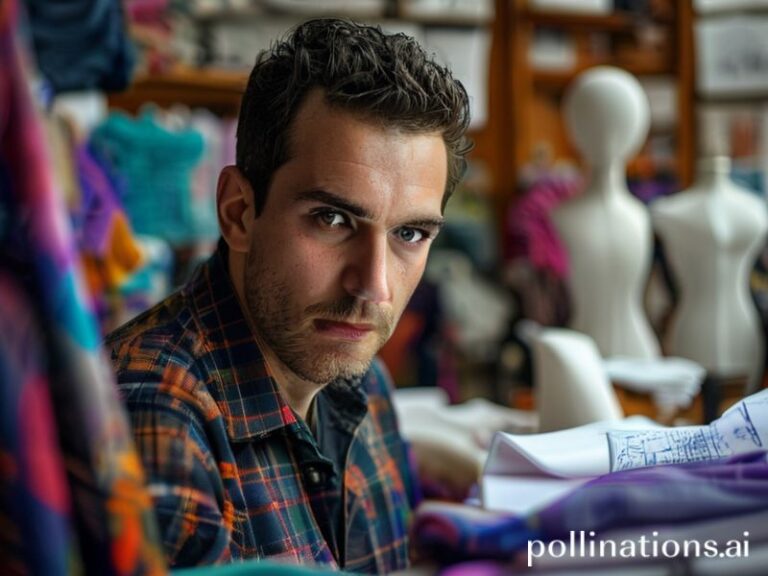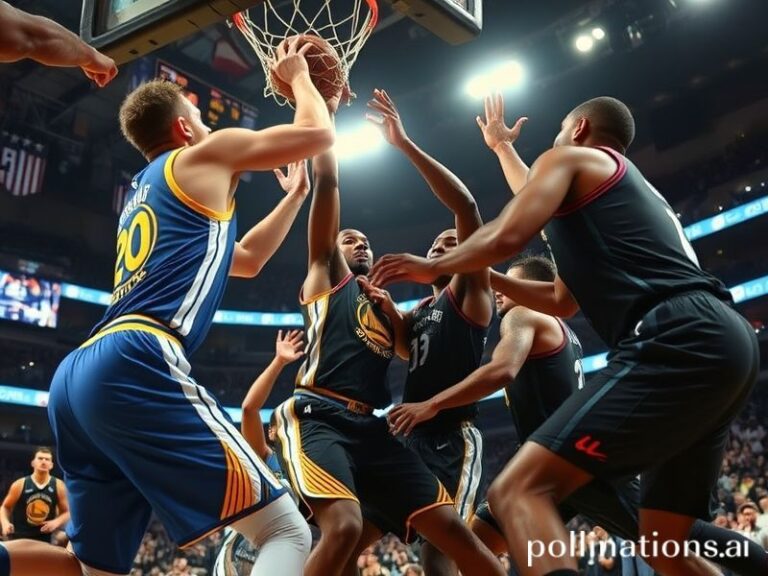James McAvoy: The Last Piece of Common Ground in a Fractured World
James McAvoy, the Scottish pocket-rocket who has spent two decades convincing the world that he is both Professor X and a Glasgow bar brawler, has quietly become the United Nations’ favorite chameleon. While diplomats argue over commas in multilateral treaties, McAvoy has been slipping across borders with nothing more menacing than a posh English accent and the kind of smile that suggests he knows where the bodies are buried but is too polite to mention it. The planet may be busy stockpiling canned beans for the next apocalypse, yet we still find time to watch this 5’7” Glaswegian teach Hollywood how to shrink global egos to fit inside a single red-carpet tuxedo.
Consider the timeline: the Berlin Wall fell, the euro wobbled into existence, TikTok convinced teenagers that books are decorative, and somewhere in the middle McAvoy mastered the international art of being everybody’s second-favorite leading man. Not quite the brand-name draw of DiCaprio, never the controversy lightning rod of Leto, he instead occupies that rare geopolitical sweet spot: universally respected, rarely reviled, and—crucially—cheap enough for indie auteurs from Seoul to São Paulo. When Netflix’s algorithm finally collapses under the weight of its own data, anthropologists will discover that McAvoy’s face is the one remaining shared cultural reference between a Norwegian pensioner and a Filipino call-center agent. It’s soft power by way of cheekbones.
The implications are absurdly outsized. France still refuses to import British beef, yet it will happily binge McAvoy growling in “Filth,” a film whose moral takeaway is that Edinburgh detectives should probably drink less. China’s censors may blot out Winnie-the-Pooh, yet McAvoy’s splintering personalities in “Split” slipped past with nothing more than a parental-guidance sticker. Somewhere in a Geneva think-tank, a weary analyst is writing a white paper titled “The McAvoy Doctrine: How Mid-tier Stardom Prevents Soft Power Decay,” only to have it buried under an avalanche of quarterly climate reports nobody will read either.
His career trajectory mirrors the global economy’s own manic-depressive cycle: early millennium optimism (BBC period dramas), post-2008 austerity (tight indie budgets), streaming-era gig work (voice cameo in “Watership Down,” paycheck gig in “Dark Phoenix”), and now the prestige-TV gold rush that has him juggling dual roles in “The Crowded Room” while presumably fielding WhatsApp voice notes from his accountant asking if Turkish residuals can be paid in lira. If the International Monetary Fund ever needs a mascot, McAvoy’s résumé is right there: adaptable, fluent in both blockbuster and arthouse, and—unlike crypto—still solvent.
Meanwhile, the world burns, literally. As COP28 delegates argue over commas in climate accords, McAvoy is busy retrofitting his Glasgow home into an eco-bunker that reportedly includes a panic room lined with first-edition Irvine Welsh novels. One can picture him sipping a responsibly sourced oat-milk flat white while the Thames Barrier fails and Deadline Hollywood live-tweets the deluge. The joke, of course, is that he’ll probably survive the water wars because nobody can stay mad at the guy who once played Mr. Tumnus, the friendly faun who ushered children into Narnia instead of conscripting them into a child army.
In the end, McAvoy’s greatest trick isn’t shape-shifting into twenty-three distinct personalities; it’s convincing a fractured planet to agree on one: the underdog who outran class, accent, and height requirements to become a reliable export. When the last cinema folds into a luxury-apartment complex, archaeologists will excavate a single artifact: a scratched DVD of “Atonement” buried next to a half-melted NATO badge. They’ll draw the only logical conclusion—that in an age of walls, tariffs, and algorithmic fragmentation, James McAvoy was the last piece of common ground we had left. And then, because irony is the only renewable resource left, they’ll auction it on whatever passes for eBay in the post-climate darknet. Opening bid: one soggy euro.







